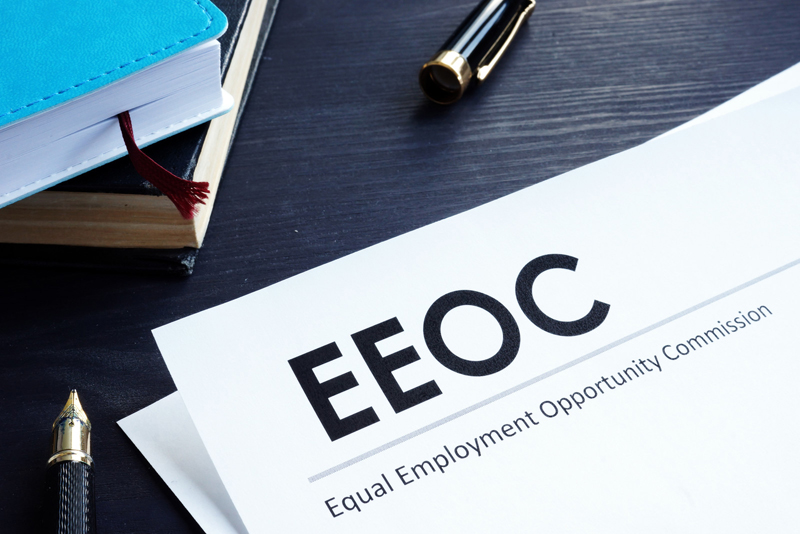EEOC (U.S. Equal Employment Opportunity Commission)’s recent guidance for handling pandemics is highly significant information for employers, workers’ compensation lawyers, companies providing medical review solutions for medical-legal entities, and employees among others. The agency had earlier published such guidance to address the H1N1 influenza pandemic in 2009. The present guidance related to COVID 19 was published first in mid-March 2020, then on April 9, 2020, and on April 17, 2020. The EEOC administers workplace anti-discrimination laws, including the ADA (Americans with Disabilities Act) and the Rehabilitation Act (that include the requirement for reasonable accommodation and non-discrimination based on disability, and rules regarding employer medical examinations and inquiries), Title VII of the Civil Rights Act (which prohibits discrimination based on race, color, religion, sex, national origin), the Age Discrimination in Employment Act (which prohibits discrimination based on age, 40 or older), and the Genetic Information Nondiscrimination Act. All these laws and regulations continue to apply during the time of COVID-19 pandemic. However, they do not interfere with or prevent employers from following suggestions and guidelines made by the CDC or state/local public health authorities regarding the steps employers need to take with regard to COVID-19. Since the guidance from public health authorities could change as the pandemic evolves, employers must continue to follow the latest information on maintaining workplace safety.
The guidance published in March 2020 provided answers to questions such as the following.
- How much information can an employer request from an employee who calls in sick?
Questions can be asked about their symptoms to determine whether they have or may have COVID-19. As of now, these symptoms include, but are not limited to, fever, cough and shortness of breath. Details collected must be maintained as confidential medical records so as to stay ADA-compliant. - Can an ADA-covered employer measure the body temperature of their employees?
Yes. Though temperature checks are typically considered a prohibited medical exam by an employer, in the context of a widespread community pandemic employers are allowed to take employees’ body temperature. The findings must be maintained confidentially. - Can an employer ask employees to adopt infection-control practices in the workplace?
Yes. Employers can ask employees to wash their hands and utilize proper protocol for coughing and sneezing. Also, employers can ask employees to wear personal protective equipment such as masks and gloves. - Does the ADA allow employers to send employees home?
Yes. If an employee displays COVID-19-related symptoms, the employer can send her home. That action will not be considered disability discrimination because this pandemic has been defined as a “direct threat” by the EEOC. The EEOC also encourages employers to adopt telework measures for workers who have to be sent home. - Can an employer ask about an employee’s recent foreign travel?
Though this would not be a permitted inquiry normally, if the CDC recommends that individuals self-quarantine after visiting certain foreign locations during a pandemic, the employer can inquire whether an employee traveled to one of those regions for business/personal reasons. The CDC has maintained a list of countries for which it recommends a 14-day self-quarantine when you return to the U.S. - How can an employer adjust their hiring practices in response to COVID-19 pandemic?
Typically, the ADA prohibits all pre-offer medical exams and inquiries even during a pandemic. Nevertheless, the employer can screen job applicants for symptoms of COVID-19 after making a conditional job offer.- The employer can also measure the temperature of the applicant as part of a post-offer, pre-employment medical exam.
- In case a new hire has COVID-19 symptoms or is a diagnosed case, employers can delay the start date or withdraw the job offer because such a candidate is a direct threat to the health or safety of the workplace.
The new guidance published in April 2020 focuses mainly on employer concerns related to the COVID-19 pandemic such as the following:
- Hiring practices
- Reasonable accommodations under the ADA
- Harassment based on national origin and race
- Confidentiality of medical information
- Return to work considerations.
Here are some important concerns employers may have and their answers.
- Can an employer postpone a start date or withdraw a job offer for individuals over age 65 or who are pregnant (whom the CDC has declared to be at higher risk)?
No, because that action would constitute an illegal form of age or pregnancy discrimination. Employers can request such employees to work from home so as to reduce risk of exposure to the virus but cannot deny employment based on the same. - In case a job cannot be performed via telework, what reasonable accommodations do employers have to protect employees who are at higher risk of infection due to pre-existing conditions?
Employers need not accommodate employees if such accommodation would cause an undue hardship of the employer. If a worker requests minimal contact with others, and cannot telework because of the nature of the job, accommodations could include changes to the work environment that would ensure physical distancing between customers and coworkers, and other accommodations that reduce chances of exposure and contact. The EEOC emphasizes that flexibility by employers and employees is important when identifying appropriate and effective accommodations. Employers can consider temporarily transferring workers to different positions, modifying a work or shift schedule or temporary job restructuring. However, employees are not entitled to the accommodation of their choice. - In connection with COVID-19, what constitutes an “undue hardship”?
Before COVID-19, most accommodation requests didn’t constitute an undue hardship because of an employer’s large overall budget and resources. The pandemic has led to abrupt loss of some or all of employers’ income stream, and this is a significant consideration. However, the employer cannot straightaway reject any accommodation request that costs money, but must evaluate the cost of an accommodation against their current budget. If the employer rejects an accommodation request based on financial considerations, they must be prepared to corroborate the undue hardship that the rejected accommodation would have placed on them. - If an employee is working remotely and requests an accommodation, can the employer still ask for information to determine if the condition is a qualifying disability and engage in the normal interactive process?
Yes. Just because an employee is absent from the physical workplace, it doesn’t preclude employers from requesting necessary documentation/information under the ADA. The employer can engage in the interactive process and determine if the alleged disability qualifies for an accommodation under the ADA. - Are employers who decide to forgo the interactive process and provide a temporary accommodation, permitted to identify an end date for such accommodation?
Yes. This pandemic may force some employers to do without the interactive process and grant a temporary accommodation request. Employers are allowed to forgo the interactive process and devise end dates for temporary accommodations to suit changing circumstances based on public health directives. However, if an employee requests an extension of a temporary accommodation, the employer must consider it. - What tools do employers have to fight racial and national origin harassment that could arise in the COVID-19 scenario?
Employers can minimize the chance of harassment by clearly communicating to the employees that fear of the pandemic should not be misdirected against individuals because of a protected characteristic including their race, national origin or other prohibited bases. The EEOC has practical anti-harassment tools available. - What are the obligations of an employer as regards employee medical information?
The ADA requires that all medical information about employees must be maintained separately from the personnel file to limit access to such confidential information. COVID-19 medical information can be stored with existing medical files. Medical information that employers create within the scope of measures to control COVID-19 spread, such as employee temperature checks, must be maintained confidentially. - As and when restrictions are lifted and the workforce returns to the workplace, how should employers handle accommodation requests involving personal protective equipment (PPE) or other measures designed to protect workers?
The employer must discuss the request and provide the modification or an alternative accommodation that addresses the employee’s concerns, provided that the accommodation is not an “undue hardship”.
On April 23, Thursday, the EEOC said that companies can test employees for COVID-19 before allowing them to enter the workplace as long as the tests are accurate and reliable. This announcement is made at a time when some U.S. states are starting to lift lockdown orders and allow businesses to reopen. This latest guidance seems to authorize a broader array of testing options. The mandatory medical testing which is generally prohibited under the ADA is allowed if it is “job related and consistent with business necessity.” As a medical records services company, we understand that the new guidance allows employers to take steps to determine if workers entering the workplace have COVID-19, the illness caused by the novel coronavirus because the virus poses a “direct threat” to the health of others. The EEOC also emphasized that before implementing any kind of testing, employers must review standards from the U.S. Food and Drug Administration and other authorities about which type of testing is considered safe and accurate. Also, they should require their employees to observe infection control practices such as social distancing and regular handwashing to contain the transmission of the coronavirus. Employers should remain diligent regarding protection measures at their workplace and keep updated with the guidance issued by the EEOC on potential ADA implications.
Disclaimer: The facts mentioned in the blog have been sourced from reliable internet resources and are not the conclusions or opinions of MOS or any of its stakeholders. For professional legal opinion, consult a lawyer.




